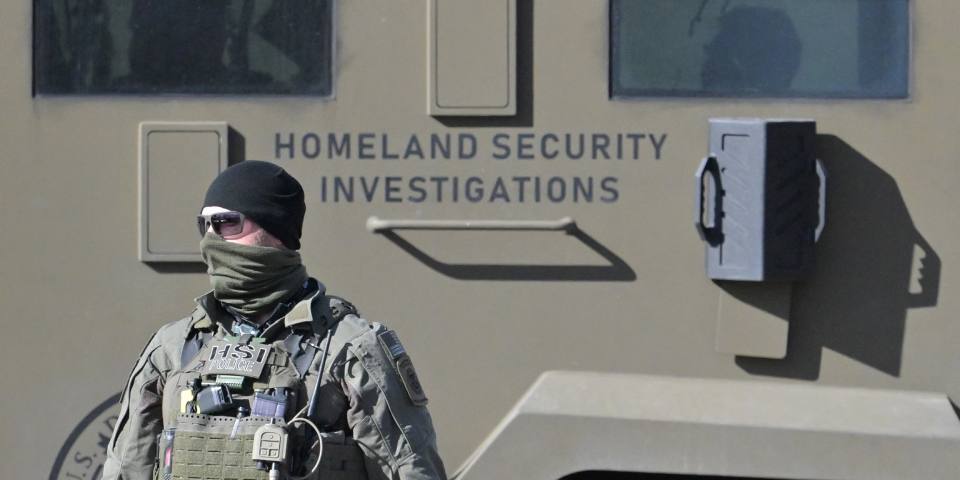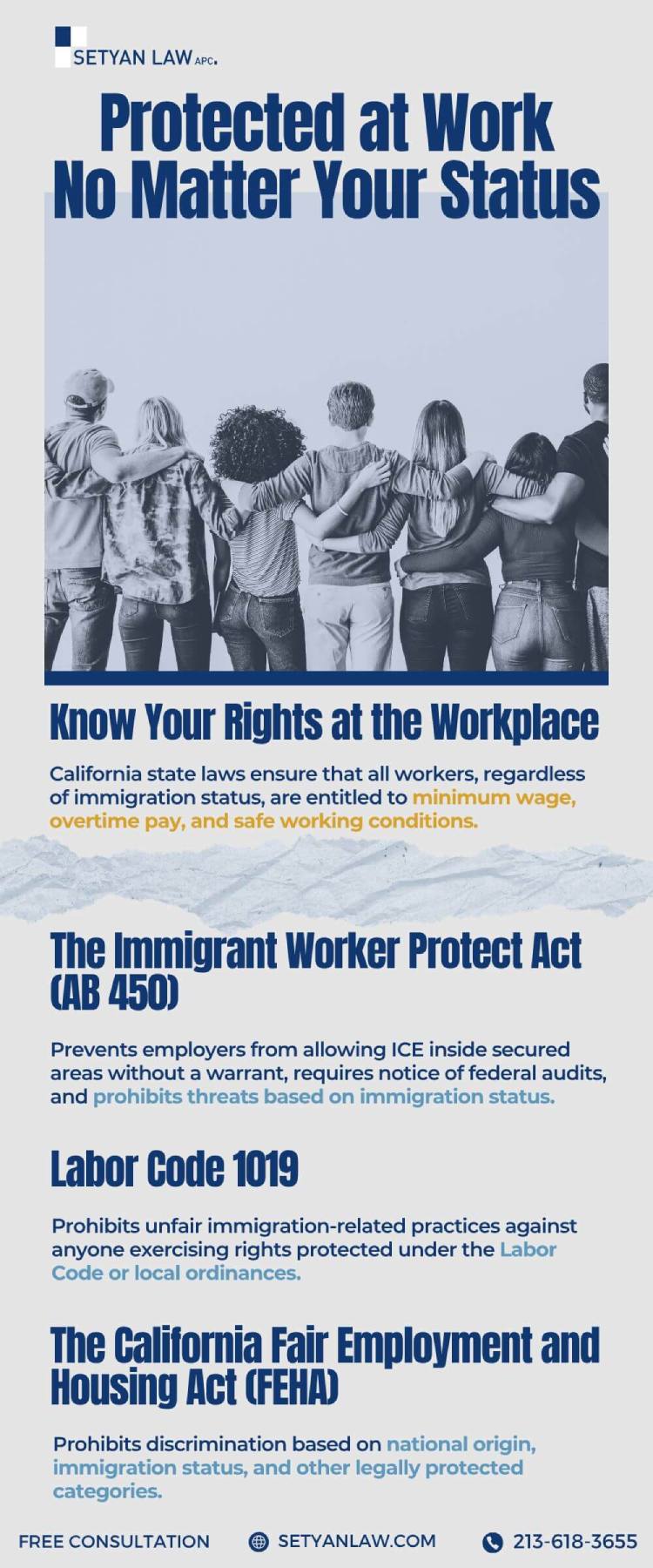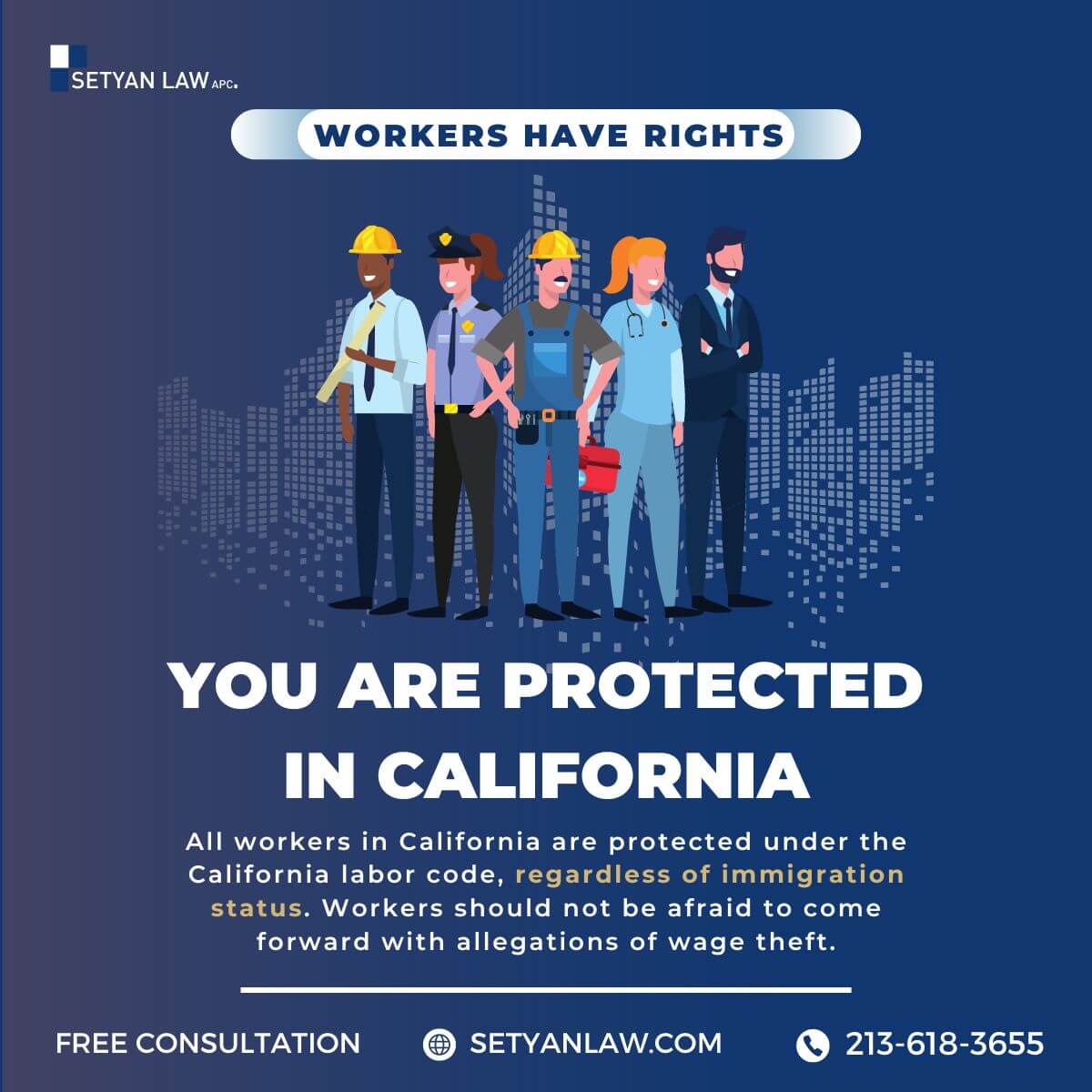Updated December 24, 2025
How to Handle an ICE Raid: Essential Safety Guide for Immigrant Families
An ICE raid can happen without warning, leaving immigrant families feeling vulnerable, frightened, and unsure how to respond. Unfortunately, these enforcement actions have become increasingly common, affecting communities across the United States and separating countless families.
However, knowing your rights during an ICE raid is your strongest defense. Despite the intimidating nature of these encounters, you have specific legal protections—even if you're undocumented. Understanding these rights and how to assert them can make a critical difference in the outcome of an enforcement action.
This guide provides essential information to help you prepare for and respond to potential ICE encounters. From knowing when you can legally refuse to open your door to understanding what to do if detained, these practical steps can help protect you and your loved ones during one of the most challenging situations an immigrant family might face.
Being prepared isn't about living in fear—it's about empowering yourself with knowledge that can keep your family together and safe.
Know Your Rights Before a Raid
Preparing for a potential ICE raid begins with understanding your fundamental legal protections. The U.S. Constitution grants specific rights to everyone within the country, regardless of immigration status. Being aware of these rights beforehand can make a critical difference during an actual encounter.
You have the right to remain silent
Everyone in the United States has the constitutional right to remain silent when questioned by immigration officers. This means you are not required to answer questions about:
- Where you were born
- Whether you are a U.S. citizen
- How you entered the country
- Your immigration status
To exercise this right effectively, you must state it clearly. Simply say, "I am exercising my right to remain silent" or "I wish to remain silent." Once you express this intention, ICE agents must stop questioning you. Additionally, anything you say can potentially be used against you in immigration court proceedings, so maintaining silence protects you from self-incrimination.
You do not have to open the door without a warrant
When ICE agents knock on your door, you are not obligated to let them in unless they have a valid judicial warrant. This is a crucial distinction—many people mistakenly open their doors out of fear or confusion.
A valid judicial warrant must be:
- Signed by a judge (not an ICE officer)
- Include your correct name and address
- Authorize entry into your specific premises
ICE officers often carry administrative warrants (Form I-205), which do not grant them authority to enter your home without consent. You can ask officers to slip the warrant under the door or hold it up to a window for inspection before deciding whether to open the door.
If no valid judicial warrant is presented, firmly state: "I do not consent to your entry." Teach family members, especially children, never to open the door during such situations.
You can refuse searches without consent
Furthermore, ICE cannot search you or your belongings without your consent. If an agent attempts to search your person or property, clearly state: "I do not consent to this search." While officers may pat you down if they suspect you have a weapon, they cannot conduct a full search without proper authorization.
If ICE agents somehow gain entry to your home without consent or a proper warrant, continue asserting your rights by saying: "I do not consent to your presence in my home. Please leave." Repeat this statement until they depart.
Should officers force their way in despite your objections, do not physically resist, as this could lead to additional legal issues. Instead, continue verbally stating your non-consent while maintaining a record of what happened.
First and foremost, remain calm during any interaction with immigration authorities. Document the encounter afterward by writing down officer names, badge numbers, and details about what occurred. This information could prove valuable if legal action becomes necessary later.
Remember that understanding and asserting your rights is not obstruction—it's your legal entitlement under U.S. law. Knowing these fundamental protections forms the foundation for how to respond appropriately during an actual ICE raid.
What to Do If ICE Comes to Your Home
When ICE agents knock on your door, your immediate actions can significantly impact the outcome of the encounter. Remaining calm is crucial—take a deep breath and remember your rights.
Ask to see a judicial warrant
Immigration officers cannot legally enter your home without a valid judicial warrant or your consent. Consequently, your first step should be verifying what type of warrant they have:
- Ask agents to slide the warrant under the door or hold it up to a window
- Check if it's signed by a judge (not merely an ICE officer)
- Verify it contains your correct name and address
- Confirm it specifies the areas to be searched
Remember that an ICE administrative warrant or "ICE warrant" does not give agents authority to enter private spaces without consent. Only a judicial warrant signed by a judge grants this permission. Administrative documents are signed by immigration officers, not neutral magistrates, making them insufficient for forced entry.
Do not open the door unless required
Opening your door can sometimes be interpreted as giving consent for entry. Therefore, keep your door closed while communicating with officers. Teach children in your household this important rule as well.
If the officers present anything other than a proper judicial warrant, you can lawfully refuse entry. Simply state through the closed door: "I do not consent to your entry." Though ICE may use intimidation tactics, without a judge-signed warrant specifying your address, they legally cannot force their way in.
Nevertheless, if agents enter anyway, do not physically resist as this could lead to additional charges. Rather, continue clearly stating: "I do not consent to your entry or search of these premises."
Speak through the door or window
Communication should happen without opening your door. Initially, ask officers to identify themselves—specifically ask if they are from Immigration or ICE, as they might simply say "police."
When speaking through the door:
- Remain polite but firm
- Avoid providing any information about your immigration status
- Do not lie or show false documents
- Clearly state that you are exercising your right to remain silent
If they lack a judicial warrant, you can politely inform them: "I do not want to answer any questions or let you in." You may add that they can leave their contact information if needed.
Do not sign anything without a lawyer
ICE agents might pressure you to sign documents, including voluntary departure agreements that waive your right to appear before an immigration judge. Signing such documents can have serious legal consequences, potentially leading to immediate deportation.
If detained or questioned, firmly state: "I want to speak to a lawyer and choose to remain silent." This statement protects you from self-incrimination. Anything you say may be used against you in immigration proceedings, thus maintaining silence is often the safest approach.
Throughout any ICE encounter, strive to document what happens. Mentally note officers' names, badge numbers, and what occurred. This information might prove valuable if legal challenges arise afterward. Additionally, if it's safe, you may record the interaction, though this should not interfere with the officers' activities.
Above all, understanding these procedures beforehand enables you to respond appropriately, protecting your rights and potentially keeping your family together during these challenging situations.
How to Respond If Stopped in Public or While Traveling
ICE encounters in public spaces present unique challenges compared to home raids. Unlike private residences, streets, transportation hubs, and roadways offer fewer physical barriers between you and immigration officers. Understanding how to respond in these settings is essential for protecting your rights.
Stay calm and do not run
Maintaining composure is your first priority during an ICE encounter in public. Even if frightened:
- Do not run, argue with, resist, or obstruct officers
- Keep your hands visible where officers can see them
- Speak in a steady, clear voice if you choose to communicate
- Avoid sudden movements that could be misinterpreted
If you're driving when stopped, pull over safely as soon as possible. Turn off your engine, turn on interior lights if it's dark, partially open your window, and place your hands on the steering wheel where they're clearly visible.
Ask if you are free to go
After initial contact with ICE agents, politely ask: "Am I free to leave?" This simple question establishes important boundaries:
If they say yes, calmly walk away or drive off without further interaction.
If they say no, you are being detained and should immediately state: "I am exercising my right to remain silent and wish to speak with an attorney."
For passengers in vehicles, you can specifically ask if you're free to leave. If permitted, exit calmly without further engagement.
Do not answer questions about immigration status
Everyone in the United States has constitutional rights, regardless of immigration status. Primarily:
- You have the absolute right to remain silent
- You are not required to discuss your immigration status, birthplace, or how you entered the U.S.
- If you choose to invoke this right, clearly state: "I am exercising my right to remain silent"
Remember that anything you say can potentially be used against you in immigration proceedings. Offering information about your national origin or immigration status may provide grounds for detention, even during seemingly casual conversations.
Avoid showing foreign documents
Carrying and presenting certain documents requires careful consideration:
- Never show false documents or provide false information
- Avoid carrying documents from another country, including foreign passports
- U.S. citizens are not legally required to carry identification documents
- If you have valid U.S. immigration documents and are over 18, carrying them is generally advised
If you are undocumented but have lived in the U.S. for at least two years, consider carrying proof of your residency, such as rental agreements or utility bills. This documentation could protect you from expedited removal proceedings if detained.
Throughout any public encounter with ICE, remember that constitutional protections apply to everyone on U.S. soil. ICE officers often rely on voluntary cooperation to gather information. Knowing and calmly asserting your rights represents your strongest defense during these challenging situations.
What to Do If You or a Loved One Is Detained
Detention by immigration authorities represents a critical moment where specific actions can protect your rights and improve outcomes. Knowing exactly what steps to take can make a substantial difference in the legal process that follows.
Ask to speak to a lawyer immediately
Upon detention, clearly state: "I want to speak to a lawyer." Although the government is not required to provide free legal representation in immigration cases, you have the absolute right to consult with an attorney. Request a list of free or low-cost legal services that might be available to you. Remain silent until your lawyer arrives, as anything you say could potentially affect your case.
Do not sign any documents
Never sign anything without legal counsel present. Immigration officials may pressure you to sign documents, including voluntary departure agreements that waive your right to appear before an immigration judge. These documents can have serious consequences, potentially leading to immediate deportation without a hearing. Firmly decline to sign by stating: "I will not sign anything without speaking to my lawyer first."
Contact your consulate if applicable
Foreign nationals detained by ICE have the right to contact their country's consulate or have officials notify the consulate on their behalf. Consular officials can:
- Check on your welfare
- Help communicate with family
- Ensure you receive legal representation
- Assist with medical care if needed
- Provide reading materials
For nationals of 58 specific countries, ICE must notify the consulate regardless of your wishes, as this is a mutual treaty obligation.
Use the ICE detainee locator to find loved ones
The Online Detainee Locator System (ODLS) helps families locate someone in ICE custody. To use this system, you'll need either:
- The person's complete 9-digit A-Number and country of birth, or
- Their full name, country of birth, and date of birth
The system operates 24/7 and is available in Spanish and seven other languages. For hyphenated surnames, include the hyphen in your search (e.g., "Doe-Smith"). Note that the system cannot locate individuals under 18 years old, and newly detained persons may not appear immediately in the database.
Should the online search prove unsuccessful, contact the appropriate ICE Enforcement and Removal Operations field office directly or reach out to the detention facility if you know where the person is being held.
Documenting and Reporting Rights Violations
Properly documenting an ICE raid serves as crucial evidence if your rights were violated. Following an encounter, immediately gathering information strengthens any future legal action.
Write down officer names and badge numbers
Immediately after any ICE interaction, document all identifying information about the officers involved:
- Names and badge numbers of all agents present
- Agency they represent (ICE, local police, state police)
- How many officers participated in the action
- What they were wearing (uniforms or plain clothes)
- Whether they displayed weapons
- What they stated as their purpose
- Time, date, and specific location of the encounter
This information becomes vital for any subsequent complaint or legal proceeding. Ask officers for business cards when possible, as these contain official identification.
Record what happened if safe to do so
Recording ICE encounters can provide powerful evidence, primarily focusing on the officers' conduct:
- If recording video, aim the camera at officers—not the person being detained
- Capture badges, vehicles (including license plates), and any paperwork officers are holding
- Document communications between officers or between different agencies
- If filming feels unsafe, consider audio recording or simply taking written notes afterward
Remember that recording should never interfere with officers performing their duties. If ordered to stop filming, you may need to comply depending on your comfort level with law enforcement interaction.
File a complaint with internal affairs or legal aid
Following a rights violation, you can file formal complaints through several channels:
- Department of Homeland Security's Office of Inspector General
- ICE Office of Professional Responsibility
- Civil rights organizations like ACLU
- Immigration legal aid services
When filing a complaint, include all documented information—officer details, witness statements, and descriptions of alleged violations. If injured during the encounter, seek immediate medical attention and photograph any injuries as evidence.
Remember that reporting violations helps not only your case but potentially protects others in your community from similar treatment.
Protecting Your Family Through Knowledge and Preparation
Navigating potential ICE encounters requires knowledge, preparation, and composure. Throughout this guide, we've covered essential steps that can help protect you and your loved ones during these challenging situations.
Undoubtedly, your most powerful protection comes from understanding your constitutional rights. These rights apply to everyone in the United States, regardless of immigration status. Therefore, remembering that you can remain silent, refuse entry without a judicial warrant, and request legal representation forms your strongest defense against potential rights violations.
Preparation makes all the difference during actual encounters. Accordingly, create a family emergency plan, memorize important phone numbers, and discuss with household members what to do if ICE officers appear at your door. Additionally, keep important documents organized and accessible to authorized individuals should you be detained.
Your response during an actual encounter significantly impacts outcomes. Though intimidating, remaining calm allows you to think clearly and assert your rights effectively. Meanwhile, avoiding self-incrimination by declining to answer questions about your immigration status protects you from potential legal consequences.
Documentation after any ICE interaction provides crucial evidence if your rights were violated. Badge numbers, names, and detailed accounts of what occurred support any subsequent complaints or legal actions you might pursue.
Most importantly, remember that seeking knowledge about your rights demonstrates strength, not fear. This information empowers you to protect yourself and your family during difficult circumstances.
The goal remains keeping families together and safe. By understanding your rights, preparing thoroughly, responding appropriately, and documenting encounters, you take meaningful steps toward this important objective. Knowledge truly becomes your strongest shield against unjust treatment and family separation.
If you need employment litigation, call Setyan Law at (213)-618-3655. Free consultation.








